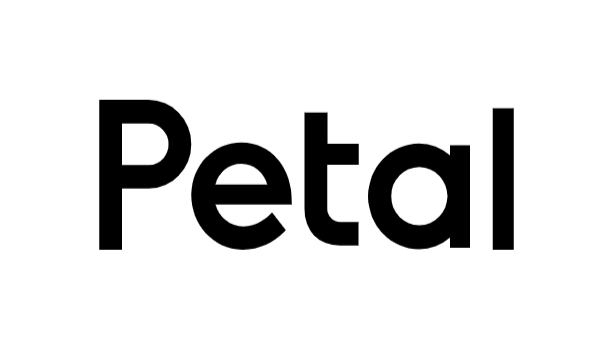Subscribe
"Unlock exclusive insights and elevate your financial wisdom with NetWorth.com — subscribe now to stay ahead in the wealth game!"

Building a solid credit history is essential for achieving long-term financial health and accessing future borrowing opportunities, such as mortgages, car loans, or personal loans. A strong credit history can lead to better interest rates and more favorable loan terms, ultimately saving money over time.
Credit cards can be valuable tools when used responsibly for those looking to establish or rebuild their credit. They allow users to build a record of timely payments, manageable debt, and low credit utilization, all contributing to a positive credit score. This article reviews some of the best credit cards designed to help users build their credit. It highlights key features like low fees, credit bureau reporting, and tools for monitoring credit progress.
Below is a list of top credit cards for building credit, each with unique features to support credit growth. These cards are selected for their benefits, low fees, and options that cater to different credit profiles, from secured cards for beginners to unsecured options with rewards.





When choosing a credit card to build credit, it’s essential to consider specific features to help you maximize your credit score while minimizing costs.
Once you know what features to look for, consider the top credit card options recommended for building credit. These cards typically offer a range of benefits, including low fees, accessible credit-building features, and occasional rewards.
Each of these cards offers unique benefits that can suit different needs, from those starting with no credit history to those rebuilding their scores. Some cards provide perks like cashback on purchases or regular credit limit increases based on responsible usage. Look for the card that best matches your goals and financial situation to make the most out of your credit-building journey.
Secured credit cards are valuable tools for individuals with little or no credit history or those looking to rebuild credit. These cards require a refundable security deposit, typically equal to the card’s credit limit, which minimizes risk for lenders and makes approval easier for applicants with poor or limited credit.
By making regular, on-time payments, secured cardholders can build a positive credit history that is reported to the credit bureaus, setting the foundation for future credit opportunities.
Several top-secured credit cards are available. Look for cards with low or no annual fees, such as the Discover it® Secured Credit Card, which offers cash-back rewards, or the Capital One Platinum Secured Card, known for flexible deposit requirements. Both cards report to all three credit bureaus, an essential feature for building credit effectively.
As credit improves, transitioning from a secured to an unsecured card is important. Many issuers, like Discover and Capital One, periodically review accounts and offer a transition to an unsecured card. To increase your chances, maintain a consistent payment history, keep utilization low, and regularly check with your issuer on upgrade options. Moving to an unsecured card returns your initial deposit and can lead to higher credit limits and better terms.
Unsecured credit cards designed for credit building are also available for those with limited credit history but may not need a secured card. These cards do not require a security deposit and are often geared toward applicants with low or fair credit scores. Many also offer useful credit-building features, such as free credit score monitoring and automatic credit limit increases after a period of responsible use.
Notable options include the Capital One Platinum Credit Card, which has no annual fee and may increase credit limits after six months of on-time payments, and the Petal® 1 “No Annual Fee” Visa® Credit Card, which offers cash-back rewards based on payment history and includes financial tracking tools. These cards also report to the major credit bureaus, ensuring credit activity is reflected in your credit profile.
However, unsecured credit cards for beginners often come with higher interest rates and smaller credit limits. It’s crucial to use these cards responsibly, avoiding carrying balances to prevent high-interest charges. Unsecured cards may also have stricter approval requirements than secured cards, making it essential to check qualification requirements before applying.
Building credit requires careful and responsible use of credit cards. The following tips can help ensure a steady path to a favorable credit profile:
Monitoring your credit is crucial to ensure you’re building credit effectively. Several free tools and apps, such as Credit Karma, Credit Sesame, and Experian, provide credit score tracking and updates on credit changes. Many banks and credit cards offer free access to your credit score as part of their services.
To track progress, review your credit report regularly from each of the three major credit bureaus (Equifax, Experian, and TransUnion) to verify that information is accurate. Look for errors, such as incorrect balances or missed payments, and report discrepancies immediately to protect your score.
Regularly monitoring your credit score shows progress and helps you stay motivated as you build positive credit habits. Checking your report periodically also lets you spot trends in your credit usage, adjust as needed, and stay on track for long-term financial goals.
Selecting the right credit card for building a credit history involves choosing one with low fees, credit-building features, and credit bureau reporting. You can gradually improve your credit score by using your card responsibly, making timely payments, and keeping balances low.
Choose a card that best aligns with your financial situation and goals, and monitor your progress over time. Building a solid credit history opens the door to better economic opportunities, such as lower interest rates and higher credit limits, setting you up for long-term financial success.

Judith Harvey is a seasoned finance editor with over two decades of experience in the financial journalism industry. Her analytical skills and keen insight into market trends quickly made her a sought-after expert in financial reporting.